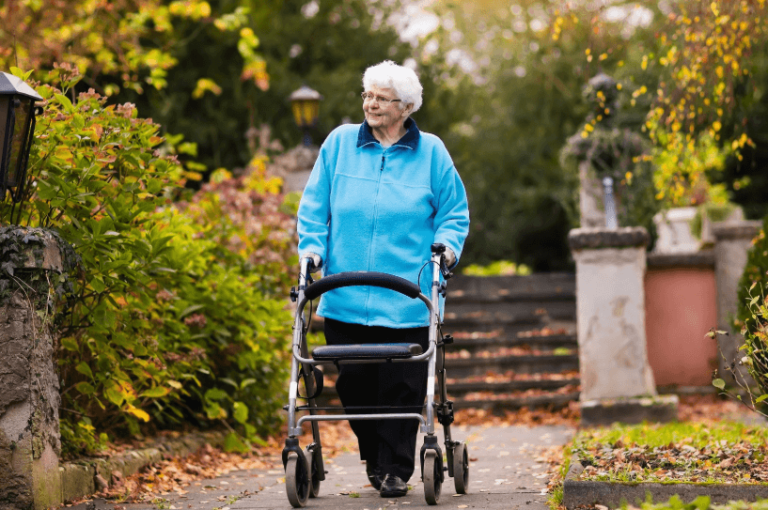Navigating Dementia at Home: Expert Care from Arcadia Home Care
Table of Contents
Understanding the Challenges of Dementia Home Care
Recognizing Early Signs of Cognitive Decline
Spotting the initial signs of cognitive decline can be tricky, but it’s super important for getting early support. It’s not just about forgetting where you put your keys once in a while; it’s more about a pattern of changes that start affecting daily life. Arcadia Home Care understands these nuances and can help families recognize these changes.
Here are some things to watch out for:
- Memory problems: More than just misplacing things; it’s about forgetting important dates or repeatedly asking the same questions.
- Difficulty with familiar tasks: Struggling to complete tasks that used to be easy, like cooking a simple meal or managing finances.
- Changes in personality or mood: Becoming more irritable, anxious, or withdrawn.
Early detection allows for timely intervention and planning, which can significantly improve the quality of life for individuals with dementia and their families. It’s about creating a supportive environment from the start.
Addressing Behavioral Changes and Sundowning
Dementia can bring about some pretty significant behavioral changes, and one of the most common is sundowning. Sundowning is when someone gets more agitated, confused, or restless in the late afternoon and evening. It can be tough on both the person experiencing it and their caregivers. Finding a reliable “caregiver agency near me” can be a game changer when dealing with these challenges.
Here are some strategies to help manage these behaviors:
- Establish a consistent daily routine: Predictability can reduce anxiety and confusion.
- Ensure adequate lighting: Dim light can worsen confusion, especially in the evening.
- Limit caffeine and sugar intake in the afternoon and evening: These can contribute to restlessness.
- Create a calm and quiet environment: Reduce noise and distractions, especially during sundowning hours.
Ensuring Safety and Preventing Wandering
Safety becomes a major concern when someone has dementia, especially when it comes to wandering. People with dementia may become disoriented and wander off, which can be incredibly dangerous. Arcadia Home Care focuses on creating safe environments for “dementia home care“.
Here are some steps you can take to prevent wandering and ensure safety:
- Secure the home: Install locks on doors and windows, and consider using alarms.
- Keep a recent photo of the person: This can be helpful if they do wander off.
- Enroll in a safe return program: These programs can help locate and return wandering individuals.
- Create a safe outdoor space: If possible, create a fenced-in area where the person can wander safely.
Creating a safe environment is paramount in dementia home care. It’s about minimizing risks and maximizing the person’s ability to move around freely and safely within their home. This includes addressing potential hazards like tripping hazards, sharp objects, and access to dangerous substances. Finding the right “dementia home care” services is essential for peace of mind.
Personalized Strategies for Effective Dementia Home Care
Developing Individualized Care Plans
At Arcadia Home Care, we understand that no two individuals experience dementia in the same way. That’s why creating a personalized care plan is so important. It’s not just about ticking boxes; it’s about understanding the person’s history, preferences, and current abilities. A good care plan should be flexible and adapt to the changing needs of the individual. It’s a living document that guides the dementia home care we provide.
- Gathering information from family members and healthcare providers.
- Assessing the individual’s cognitive and physical abilities.
- Identifying specific goals and priorities for care.
A personalized care plan is the foundation of effective dementia home care. It ensures that the individual receives the right support at the right time, in a way that respects their dignity and autonomy.
Implementing Cognitive Stimulation Activities
Keeping the mind active is key. Cognitive stimulation activities can help maintain cognitive function and improve mood. These activities should be tailored to the individual’s interests and abilities. It’s about finding things they enjoy and that challenge them in a positive way. It could be anything from reminiscing about the past to playing simple games. Our caregivers at Arcadia Home Care are trained to implement these activities in a way that is engaging and supportive.
- Reminiscence therapy: Sharing memories and stories from the past.
- Puzzles and games: Engaging in activities that challenge cognitive skills.
- Creative arts: Painting, drawing, or music therapy.
Maintaining Daily Routines and Familiarity
Consistency is comforting for individuals with dementia. Sticking to a daily routine can reduce confusion and anxiety. Familiar surroundings and activities can also provide a sense of security. It’s about creating a predictable environment where the individual feels safe and supported. This is a big part of what we do at Arcadia Home Care. We strive to maintain a sense of normalcy and familiarity in the home environment. If you are looking for a caregiver agency near me, consider how they will help maintain routines.
- Establishing a consistent wake-up and bedtime schedule.
- Maintaining regular meal times.
- Engaging in familiar activities, such as reading or gardening.
The Role of Professional Dementia Home Caregivers
Compassionate Support and Companionship
Professional dementia home caregivers, especially those from a reputable caregiver agency near me like Arcadia Home Care, offer more than just task completion; they provide genuine companionship. It’s about creating a supportive and understanding environment for the person living with dementia.
- Engaging in meaningful conversations.
- Sharing hobbies and interests.
- Providing emotional support during challenging moments.
Having someone there who truly cares can make a huge difference in the quality of life for individuals with dementia. It’s about building trust and creating a positive connection.
Assistance with Activities of Daily Living
One of the core functions of dementia home care is assisting with activities of daily living (ADLs). This can range from simple tasks to more involved care, depending on the stage of dementia. Arcadia Home Care focuses on maintaining dignity and independence while providing the necessary support.
- Bathing and dressing assistance.
- Meal preparation and feeding.
- Mobility support and fall prevention.
- Toileting and incontinence care.
Professional caregivers are trained to handle these tasks with sensitivity and respect. They understand the challenges individuals face and work to make these activities as comfortable as possible.
Medication Management and Health Monitoring
Medication management is a critical aspect of dementia home care. It’s easy to forget doses or take the wrong medication, which can have serious consequences. Arcadia Home Care caregivers are trained to help with this, along with general health monitoring.
- Reminding clients to take medications.
- Ensuring correct dosages are administered.
- Observing and reporting any side effects or changes in health.
- Scheduling and accompanying to doctor’s appointments.
Finding the right dementia home care solution is important. A caregiver agency near me can provide the support needed to maintain a safe and healthy environment at home.
Creating a Dementia-Friendly Home Environment
Turning a regular house into a space that supports someone with dementia is super important. It’s about making things easier to understand and safer to move around in. Arcadia Home Care understands this, and it’s a big part of what a good caregiver agency near me should focus on when providing dementia home care.
Optimizing Home Layout for Safety
Think about how the person moves through the house. Are there tripping hazards? Is it easy to find the bathroom at night? Making small changes can make a big difference.
- Remove throw rugs that could cause falls.
- Make sure hallways and rooms are well-lit, especially at night.
- Install grab bars in the bathroom, near the toilet and in the shower.
It’s not just about preventing accidents; it’s about creating a sense of security and independence. A well-organized space can reduce anxiety and confusion.
Utilizing Visual Cues and Memory Aids
Visual reminders can help someone with dementia remember important things. It’s like leaving little breadcrumbs to guide them.
- Use labels on drawers and cabinets to show what’s inside.
- Place a large-print calendar in a visible spot.
- Put up familiar photos to spark memories and conversations.
Reducing Clutter and Distractions
Too much stuff can be overwhelming. A simple, uncluttered environment is much easier to manage.
- Keep surfaces clear of unnecessary items.
- Minimize noise from the TV or radio.
- Create a quiet, comfortable space for resting.
Finding the right dementia home care often involves finding a caregiver agency near me that understands these environmental needs. Arcadia Home Care emphasizes creating a calm and supportive atmosphere, which is key for those living with dementia.
Support for Families Navigating Dementia Home Care
Dementia home care isn’t just about the person living with dementia; it significantly impacts their family. Arcadia Home Care understands this and provides support to help families cope with the challenges. Finding a “caregiver agency near me” that understands the family dynamic is important.
Providing Respite Care for Family Caregivers
Family caregivers often experience burnout. It’s a tough job, and taking breaks is vital for their well-being. Respite care offers temporary relief, allowing family members to recharge and attend to their own needs.
Here’s how respite care can help:
- Prevents caregiver burnout and stress.
- Allows time for personal appointments and errands.
- Provides opportunities for social activities and relaxation.
Respite care isn’t a luxury; it’s a necessity. It allows family caregivers to maintain their own health and well-being, which ultimately benefits the person with dementia.
Offering Educational Resources and Guidance
Understanding dementia is key to providing the best possible care. Arcadia Home Care offers resources to help families learn about the disease, its progression, and effective care strategies. This “dementia home care” education can make a big difference.
These resources might include:
- Workshops and training sessions.
- Informational brochures and articles.
- Access to support groups and online forums.
Facilitating Communication and Understanding
Communication can become difficult as dementia progresses. Learning effective communication techniques is important for maintaining a positive relationship with the person living with dementia.
Here are some tips for better communication:
- Speak slowly and clearly.
- Use simple language and short sentences.
- Maintain eye contact and a calm demeanor.
- Be patient and understanding.
Advanced Techniques in Dementia Home Care
Managing Communication Difficulties
Communication can become really tough as dementia progresses. It’s not just about forgetting words; it’s about understanding what’s being said and expressing thoughts clearly. At Arcadia Home Care, we train our caregivers to use several techniques to help bridge these communication gaps.
- Non-verbal cues: Paying close attention to body language, facial expressions, and tone of voice can tell you a lot, even when words fail.
- Simple language: Using short, clear sentences and avoiding complex vocabulary makes it easier for the person to understand.
- Patience: Giving the person plenty of time to respond, without interrupting or rushing them, can reduce frustration.
It’s important to remember that communication is a two-way street. Even if the person with dementia can’t express themselves verbally, they still have feelings and needs that need to be acknowledged.
Engaging in Therapeutic Activities
Therapeutic activities can make a big difference in the quality of life for someone with dementia. These aren’t just about keeping busy; they’re about stimulating the mind, promoting emotional well-being, and maintaining physical function. Arcadia Home Care encourages activities tailored to the individual’s interests and abilities. Some examples include:
- Reminiscence therapy: Talking about past experiences and looking at old photos can trigger positive memories and emotions.
- Music therapy: Listening to or singing familiar songs can improve mood, reduce anxiety, and even stimulate cognitive function.
- Art therapy: Engaging in creative activities like painting, drawing, or sculpting can provide a non-verbal outlet for expression and reduce stress.
Adapting to Progressive Stages of Dementia
Dementia is a progressive condition, meaning it gets worse over time. What works in the early stages might not work later on. Our dementia home care services are designed to adapt to these changes. This means constantly reassessing the person’s needs and adjusting the care plan accordingly.
- Early stage: Focus on maintaining independence and providing support with tasks that are becoming difficult.
- Middle stage: Increased assistance with activities of daily living, such as bathing, dressing, and eating, may be needed. Behavioral changes may also become more pronounced.
- Late stage: The person may require total care, including assistance with mobility, feeding, and toileting. Comfort and dignity become the top priorities. If you are looking for a “caregiver agency near me“, Arcadia Home Care can help you find the right support for your loved one throughout all stages of dementia. We understand the challenges of dementia home care and are here to provide compassionate and professional assistance.
Choosing the Right Dementia Home Care Provider
Finding the right dementia home care provider is a big decision. It’s about more than just finding someone available; it’s about finding a good fit for your loved one and your family. There are a lot of “caregiver agency near me” options, but how do you narrow it down?
Assessing Caregiver Qualifications and Training
When looking at different dementia home care agencies, it’s important to check the qualifications and training of their caregivers. You want to make sure they have the skills and knowledge to provide the best possible care.
Here’s what to look for:
- Specific dementia care training: Do caregivers receive specialized training in dementia care, including understanding behavioral changes, communication techniques, and safety protocols?
- Background checks and screenings: Does the agency conduct thorough background checks and screenings on all caregivers?
- Ongoing training and development: Does the agency provide ongoing training and development opportunities for caregivers to stay up-to-date on best practices in dementia care?
Evaluating Agency Reputation and Experience
An agency’s reputation and experience can tell you a lot about the quality of care they provide. Look beyond the marketing materials and dig a little deeper.
- Check online reviews and testimonials. See what other families have to say about their experiences with the agency.
- Ask for references. Talk to families who have used the agency’s services to get their honest feedback.
- Consider the agency’s history. How long have they been providing dementia home care services? A longer track record often indicates more experience and stability.
Choosing a “dementia home care” provider is a big step. It’s okay to ask a lot of questions and take your time to find the right fit. Don’t be afraid to trust your gut feeling.
Understanding Service Offerings and Costs
It’s important to have a clear understanding of the services offered and the associated costs before making a decision. Different agencies offer different levels of care, and the costs can vary widely.
Consider these points:
- Service options: What specific services are included in the care plan? Does it include assistance with activities of daily living, medication reminders, companionship, or specialized dementia care?
- Cost structure: How does the agency charge for services? Is it an hourly rate, a daily rate, or a flat fee? Are there any additional costs for weekends, holidays, or overnight care?
- Payment options: What payment options are available? Does the agency accept insurance, long-term care insurance, or private pay?
With Arcadia Home Care, we strive to be transparent about our service offerings and costs, ensuring families have the information they need to make informed decisions. Our goal is to provide compassionate, high-quality dementia home care that meets the unique needs of each individual and family.
Wrapping Things Up
So, caring for someone with dementia at home can feel like a lot. It’s a big job, and sometimes you might feel pretty alone with it all. But remember, you don’t have to do it all by yourself. Places like Arcadia Home Care are there to help out. They can give you and your family some support, making things a bit easier to handle. It’s about finding good help so everyone involved can have a better time. Thinking about getting some help is a smart move for everyone.






